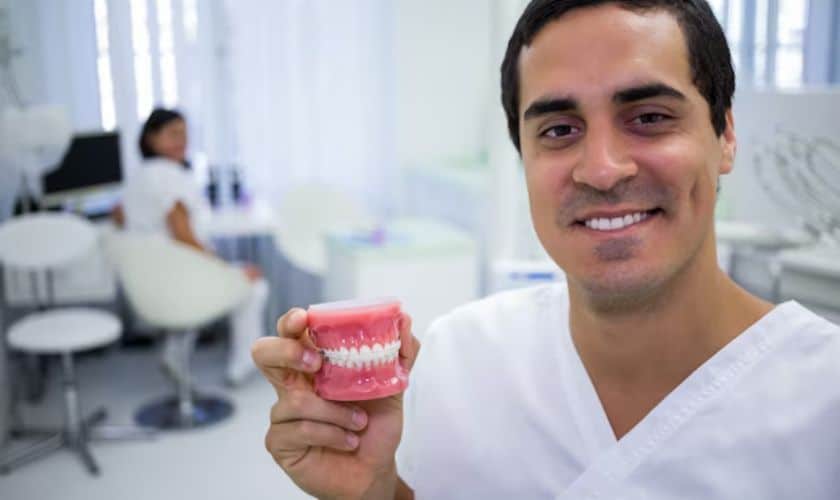Dentures, also known as false teeth, have transformed the lives of countless individuals by restoring their ability to eat, speak, and smile confidently. The decision to opt for dentures is often significant, as it can profoundly impact a person’s overall quality of life. In this exploration, we’ll delve into the multifaceted effects of dentures on various aspects of daily living, shedding light on their transformative power.
Regaining Function and Comfort
- Improved Chewing and Nutrition: Dentures restore the ability to chew various foods, enhancing nutritional intake and overall health. Individuals with missing teeth or compromised oral function often struggle to enjoy certain foods, leading to dietary limitations. Dentures empower them to savor their favorite meals without discomfort.
- Enhanced Speech: Missing teeth can affect speech clarity, leading to difficulties in pronunciation and communication. Dentures provide the necessary support for the tongue and lips, aiding in clearer speech and bolstering self-confidence in social interactions.
- Relief from Pain and Discomfort: Tooth loss can cause shifting of remaining teeth, leading to bite misalignment and discomfort. Dentures address these issues, relieving oral pain and discomfort while promoting proper alignment.
Boosting Self-Confidence and Appearance
- Restored Aesthetics: Dentures recreate a natural-looking smile, significantly impacting a person’s self-esteem and overall appearance. Restoring a complete smile can eliminate embarrassment and self-consciousness related to missing teeth.
- Facial Support and Youthfulness: Missing teeth can lead to facial sagging and an aged appearance. Dentures restore proper facial support, promoting a youthful look and bolstering self-confidence.
Psychological and Emotional Well-Being
- Enhanced Self-Esteem: The transformation that dentures bring to a person’s smile often leads to heightened self-esteem. The ability to smile without reservation positively influences self-perception and interactions with others.
- Reduced Social Anxiety: People with missing teeth may avoid social situations due to concerns about their appearance. Dentures alleviate these anxieties, allowing individuals to engage in social activities without hesitation.
Adaptation and Maintenance
- Period of Adjustment: Adapting to dentures requires time and patience. Initially, wearers might experience slight discomfort or difficulty speaking. With practice and gradual adjustment, these challenges subside.
- Proper Care and Hygiene: Maintaining dentures involves diligent oral hygiene practices. Regular cleaning, removal at night, and visits to the dentist for adjustments are essential to ensure their longevity and optimal fit.
Consultation and Customization
- Professional Guidance: Consultation with a dentist or prosthodontist is crucial before getting dentures. They will evaluate your oral health, discuss your preferences, and recommend the most suitable type of dentures.
- Customization: Dentures are custom-made to fit your mouth comfortably and naturally. Impressions of your gums and remaining teeth ensure a precise fit and improved comfort.
The impact of dentures on quality of life goes far beyond physical restoration; it extends to emotional well-being, self-confidence, and everyday activities. Dentures empower individuals to enjoy life without limitations by addressing functional and aesthetic concerns. Their transformative influence on oral health, appearance, and psychological comfort reinforces the significance of dentures as a life-enhancing solution, providing wearers with the ability to embrace each day with renewed vitality and confidence.

